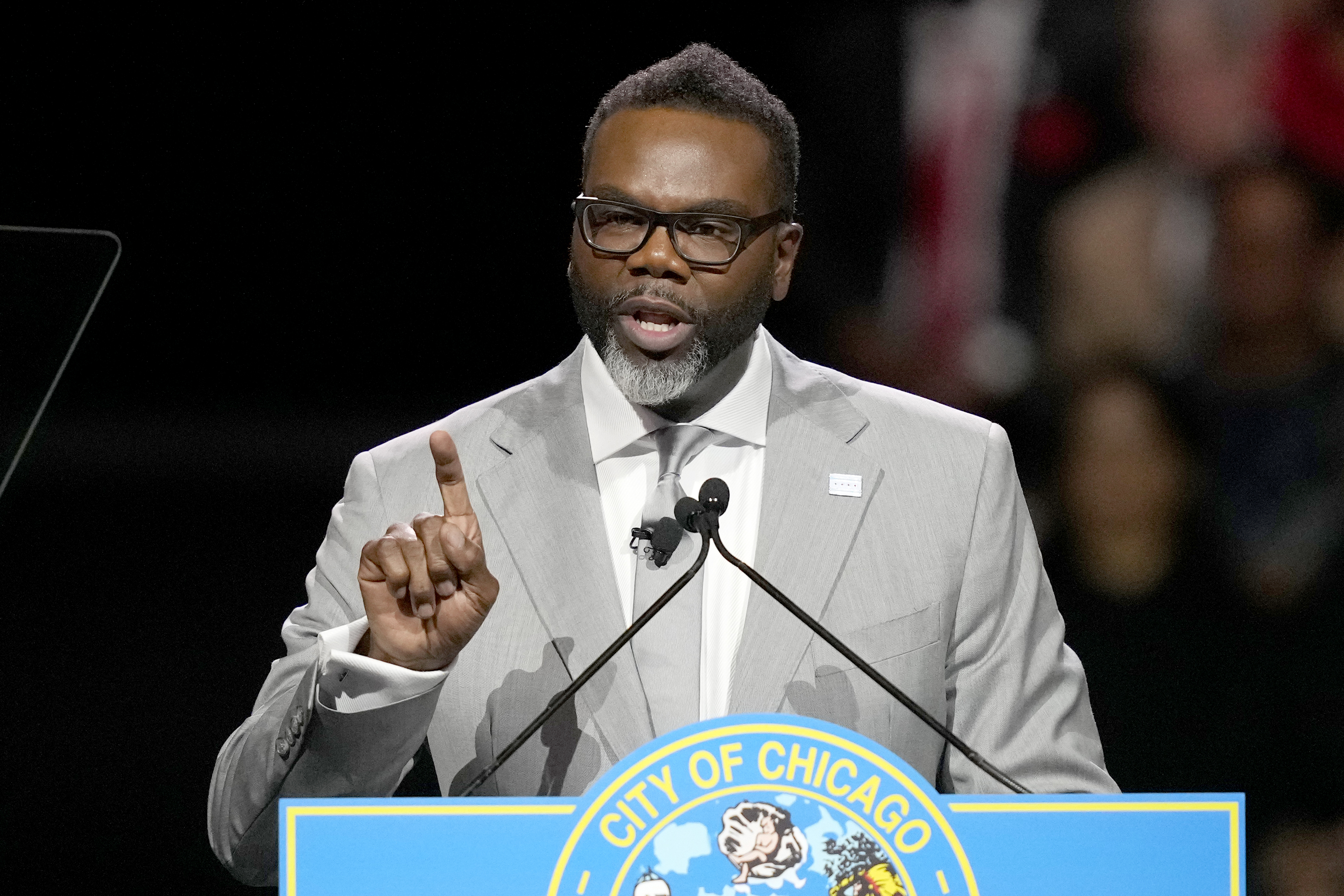
Chicago has become the latest city in the United States to call for a permanent ceasefire as Israel’s war on Gaza nears its four-month mark, placing more pressure on President Joe Biden before November’s election to help end the fighting.
After weeks of rowdy public meetings, councillors in the US’s third largest city on Wednesday narrowly approved the nonbinding resolution 24-23. The tie-breaking vote was cast by Mayor Brandon Johnson, who also had to temporarily clear the council chambers during the heated session.
The symbolic declaration includes a call for humanitarian aid into the Gaza Strip and the release of all captives held in the enclave.
“Do I believe that the words that we speak today, how we vote today influences directly international policy? I don’t. I don’t have those illusions,” said Alderman Daniel La Spata, one of the resolution’s sponsors. “But we vote with hope. We vote with solidarity. We vote to help people feel heard in a world of silence.”
The ordinance remained largely unchanged over the past few months despite urging from the council’s sole Jewish member, Alderwoman Debra Silverstein, who sought more support for Israel and criticism of Hamas.
“We all want an end to the bloodshed and an end to the war. But it is vital to understand what caused the conflict, and we should pass a resolution that addresses the issue responsibly,” she said during the meeting. “We should not pass a resolution unless it makes clear that Hamas cannot and should not attack again.”
Israeli attacks have devastated the Gaza Strip since Hamas fighters launched surprise attacks inside Israel on October 7 that killed about 1,140 people, mostly civilians, according to Israeli officials. Israel retaliated with a relentless air and ground offensive that has killed nearly 27,000 people, about 70 percent of them children, women and the elderly, according to the Ministry of Health in Gaza.
The US under both Democratic and Republican presidents has been giving Israel $3.8bn in military aid annually, ranging from fighter jets to powerful bombs. But in recent months, Israel’s relentless military campaign on Gaza has exposed deep divisions in the US amid growing anger over the Biden administration’s foreign policy.
The passing of the resolution means that Chicago has now followed cities such as Atlanta, Detroit and San Francisco to be calling for a ceasefire.
An analysis of city data by Reuters news agency this week showed that at least 48 US cities have adopted symbolic resolutions calling for a halt to Israel’s Gaza bombardment, with six others passing resolutions advocating more broadly for peace. At least 20 have passed resolutions condemning Hamas’s October 7 attacks.
Most of the ceasefire resolutions have passed in Democratic states like California, though at least 14 have passed in swing states like Michigan that could be decisive in Biden’s re-election bid, most likely against Republican former President Donald Trump.
Many of the ceasefire calls are modelled after Missouri Congresswoman Cori Bush’s “Ceasefire Now” resolution, which also urges the release of captives and an increase of aid into Gaza.
At least nine of the ceasefire calls were in Michigan, where Arab Americans account for 5 percent of the vote and Biden’s 2020 margin of victory over Trump was less than 3 percent. An October poll showed Biden’s support among Arab Americans had plunged to 17 percent from 59 percent in 2020.
“Arab Americans will not vote for Joe Biden, no matter what. That’s it. They’re done with Biden,” Sam Baydoun, a Wayne County commissioner, told Al Jazeera this week.
“That’s the bottom line. Joe Biden is not going to be able to regain the trust of the Arab-American community,” he said, reflecting the frustration of many members of the Arab-American community over Biden’s unwavering support for Israel.
Douglas Wilson, a Democratic strategist in the swing state of North Carolina, said the war “is something that’s going to be on voters’ minds” in the upcoming election.
“It’s gonna be an issue here and in all the swing states because of the Muslim populations in these states, the Jewish populations in these states and the Black and brown population [in] these states,” Wilson told Reuters.







